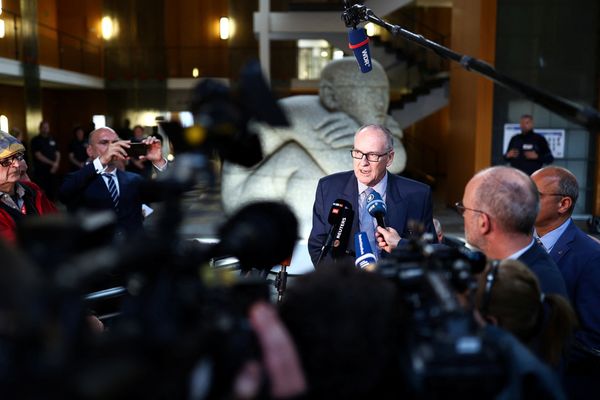
Former President Donald Trump finds himself entangled in legal proceedings on both the East Coast and in the nation's capital as his hush money trial continues in New York City while the U.S. Supreme Court deliberates over his potential immunity from prosecution for actions taken during his presidency.
In New York, the trial centers on a hush money scheme aimed at suppressing damaging stories about Trump during the final days of the 2016 campaign. Trump faces 34 felony counts related to falsifying business records in connection with payments made to silence potential scandals. The trial, overseen by Judge Juan Merchan, marks the first of four criminal cases against Trump to go before a jury.
Witness testimony from David Pecker, former publisher of the National Enquirer and a close associate of Trump, shed light on the tabloid's role in smearing Trump's opponents and burying unflattering stories about him. Pecker detailed how he promised to assist Trump in suppressing damaging narratives and even facilitated the purchase of a doorman's silence to protect the campaign's image.



Meanwhile, in Washington, the Supreme Court is considering whether Trump can be prosecuted for his alleged efforts to overturn the 2020 election results. The case revolves around Trump's attempts to dismiss charges against him, with lower courts ruling that he cannot claim immunity for actions that unlawfully interfered with the election.
Despite the legal challenges, Trump's potential conviction in the New York trial would not bar him from seeking the presidency again. However, as a state case, Trump would be unable to pardon himself if found guilty. The charge carries a maximum penalty of four years in prison, though the judge's sentencing intentions remain unclear.
The Supreme Court's expedited review of the federal case raises questions about the timeline for a potential trial before the upcoming November election. The justices are tasked with determining the extent to which a former president can claim immunity from criminal prosecution for actions taken during their time in office, a decision that could have far-reaching implications for future presidential administrations.







